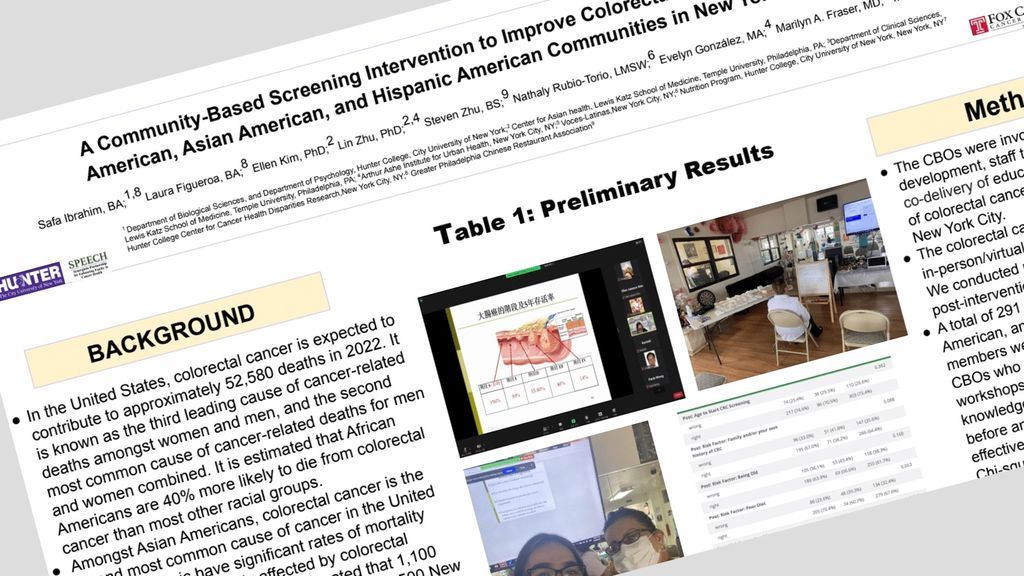
A Community-Based Screening Intervention to Improve Colorectal Cancer Education for Underserved African American, Asian American, and Hispanic American Communities in New York City
| Name | Safa Ibrahim |
| Institution | Hunter College, City University of New York |
| Research Field | Population Research |
| Role at Institution | Community Outreach Coordinator |
| Presenter(s) | Safa Ibrahim |
